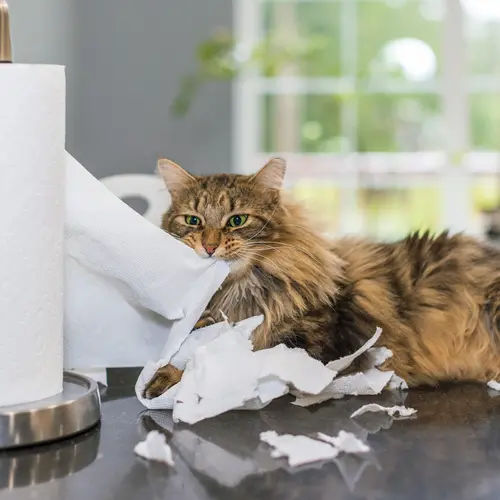Cats can recover from mild cases of pancreatitis without complications. In severe cases, though, pancreatitis can be life-threatening.
What Is Pancreatitis in Cats?
Pancreatitis happens when your cat’s pancreas becomes inflamed. It can be sudden and short-term, known as acute pancreatitis, or ongoing, called chronic pancreatitis.
The pancreas has two key activities: making metabolic hormones called insulin and glucagon that regulate blood sugar and making digestive enzymes that help break down food.
Pancreatic enzymes are powerful. They can potentially break down parts of the body and the pancreas itself, so they are normally sent to the gut in an inactive state. Once they reach the intestines, they are activated to digest food.
Pancreatitis can disrupt this process, and enzymes can be activated too soon inside the pancreas, leading to symptoms and self-digestion of the pancreas.
What Causes Pancreatitis in Cats?
It’s not exactly clear what causes pancreatitis in cats. It used to be considered a rare disease in cats, but recent studies show that it’s more common than originally thought.
Pancreatitis is linked to some cases of viral or parasite infections like toxoplasmosis or pancreatic flukes, and other problems like an injury, but these aren’t common causes. Pancreatitis is often only a minor part of these conditions, too.
Other less common causes are tumors, inflammatory bowel disease, diabetes, and certain medications. Pancreatitis in cats also often happens along with liver or gallbladder disease, but the exact cause is generally unknown. In most cases, it happens suddenly, without a reason.
What Are Symptoms of Pancreatitis in Cats?
Pancreatitis symptoms are vague and usually look like a lot of other digestive problems. They can happen in any breed, both males and females, and any age, though it might be more common in cats older than age 7.
Symptoms of pancreatitis in cats can include:
- Loss of appetite
- Lack of energy
- Vomiting
- Yellow eyes and gums
- Fever
- Belly pain
- Weight loss
- Dehydration
- Diarrhea
In severe cases, pancreatitis can cause shock and sudden death.
How Is Pancreatitis in Cats Diagnosed?
There is not one definite test for pancreatitis, so diagnosing the condition can be challenging. Your vet will take your cat’s history and symptoms and do a physical exam. They might run different tests to rule out other problems and confirm a diagnosis.
Blood tests can show high liver enzymes and kidney changes, but these are common in lots of conditions. Sometimes, blood work shows high pancreatic enzymes, which can help diagnose the condition. It’s common for cats to have normal levels, though.
Your vet might order X-rays or an ultrasound. An X-ray doesn’t show changes to the pancreas, but it can help rule out other problems in the digestive tract. An ultrasound is more useful and can show pancreas inflammation in two out of three cats.
A blood test called feline pancreatic lipase immunoreactivity, or fPLI, is the most specific test. It’s a rapid test that looks for inflammation markers, but it can still miss some cases.
In rare cases, your vet might do a pancreatic biopsy where they take a piece of the pancreas and analyze the cells. This procedure involves surgery and anesthesia and is not generally recommended.
What Is the Treatment for Pancreatitis in Cats?
There are no specific medications, so treatment for pancreatitis in cats focuses on managing symptoms, side effects, and nutrition.
If your cat also has diarrhea, they can quickly become dehydrated and might need IV fluids and hospitalization. The fluids can help flush the pancreas and allow it to heal.
Your vet will also give your cat pain relievers and anti-nausea medication and slowly add food back. Cats recover faster when they start eating early on, so they might try medications to increase appetite if your cat doesn’t want to eat. After recovery from mild pancreatitis, your cat might permanently need low-fat meals and treats.
What Is the Outlook for Pancreatitis in Cats?
The outlook is good for early treatment and mild to moderate pancreatitis in cats. Life expectancy is uncertain for severe cases, and 9-40% of cats with severe pancreatitis don’t survive. Your vet will discuss options with you.

